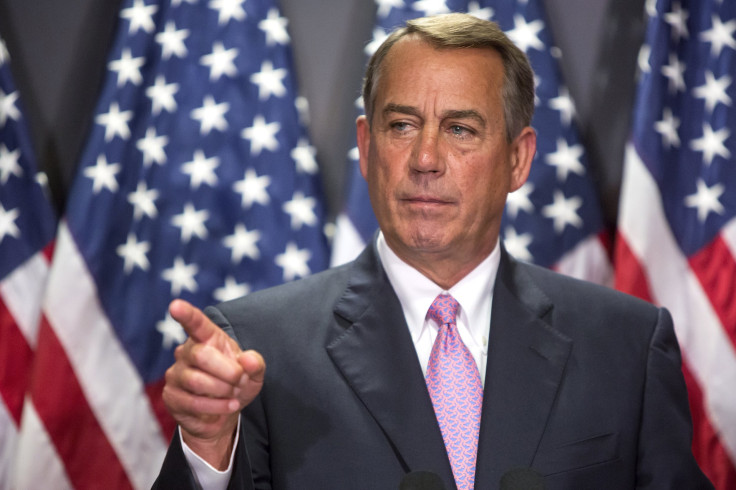After Benghazi Committee Approved By US House Of Representatives, Democrats Mull Boycotting Panel

The U.S. House of Representatives voted on Thursday to create a select committee to investigate the 2012 attacks in Benghazi, Libya, that led to the deaths of four Americans.
The House voted 232-186 to establish the panel, which Republicans had sought after many conservatives felt previous hearings on the matter were insufficient.
Some Republicans claimed the White House had stonewalled previous Benghazi probes, and they believe the Obama administration is withholding information about the attacks, which they say is available. Democrats object to the committee on the grounds that they won't have power to call witnesses and will be outnumbered on the panel.
The Benghazi select committee will reportedly have broad authority to investigate all aspects of the incident, including issuing subpoenas, and it will be led by Trey Gowdy, a South Carolina Republican and a former prosecutor.
John Boehner, the speaker of the U.S. House of Representatives, named the panel's six committee members on Friday afternoon: Rep. Susan Brooks (R-IN); Rep. Trey Gowdy (R-SC), Chairman; Rep. Jim Jordan (R-OH), Rep. Mike Pompeo (R-KS), Rep. Martha Roby (R-AL); Rep. Peter Roskam (R-IL); Rep. Lynn Westmoreland (R-GA).
Democrats said they will decide whether or not to boycott the panel on Friday.
“When I heard of this terrible idea to create this special committee, I could not help but think of Iraq, when not four but 4,000 Americans died,” Rep. Eliot Engel, D-N.Y., said. “But my Republican colleagues conducted virtually no investigations into that tragedy based on a lie. They set up no committees to uncover the truth behind the phony intelligence, the torture, the secret prisons or the spin that Iraqis would greet us with flowers.”
"A line was crossed," Boehner said. "The White House did more to obscure what happened, and why, than what we were led to believe."
The Republicans made a renewed push for the committee after new White House emails related to the administration’s response were released. One of those e-mails allegedly included the White House's “goals” for how the administration wanted to shape its public messaging about the attacks.
"There's no question that this select committee will waste potentially millions of taxpayer dollars in a purely partisan exercise, and serve as little more than a fundraising vehicle for Republicans," Rep. Adam Schiff, D-Calif., said, according to the Wall Street Journal.
Nearly 60 unidentified individuals attacked an American diplomatic mission in Benghazi, Libya, in September 2012. The Obama administration initially claimed the violence began with "spontaneously inspired” demonstrations that sprung up to protest the anti-Islamic video "Innocence of the Muslims," while officials later said the attackers were from terrorist groups who had stormed into the diplomatic compound and then set fire to it.
"The darn thing has nearly become a cold case because of the refusal of the White House to prioritize anything related to the investigation except for their own bizarre political spin about what happened," Rep. Michael Burgess, R-Texas, said, according to the Huffington Post.
© Copyright IBTimes 2025. All rights reserved.






















